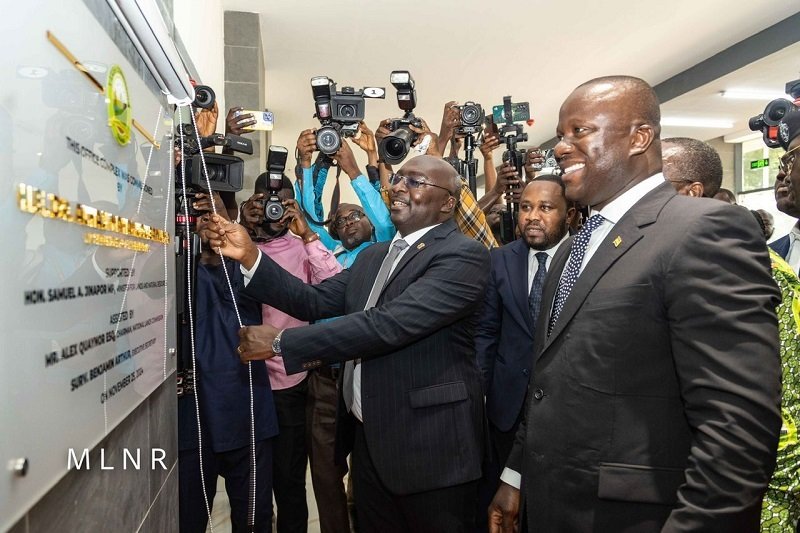A well-functioning land administration system is essential for sustainable economic development, social cohesion and a vibrant investment climate, the Vice President, Dr Mahamudu Bawumia, has stated.
He also said that ensuring an effective land administration system was important as Ghana’s land sector continued to play a critical role in the country’s economy as it shaped communities and cities as a whole.
Dr Bawumia indicated this when he inaugurated a newly- built Lands Commission Head Office building in Accra yesterday, to enhance its administrative operations.
“The Ghana Statistical Service estimates that some 90 per cent of our population derive their livelihood indirectly and directly from land. This is why building a robust and modern land administration must be a priority for all”, Dr Bawumia noted.
According to him, the government, over the last eight years had been working to build a robust land administration anchored on three pillars namely, modern office infrastructure, digitalisation and the automation of business processes and well-motivated and knowledgeable staff.
The newly inaugurated head office, Dr Bawumia said, which was geared towards the first pillar of a robust land administration, demonstrated the commitment of the government to creating a conducive environment for effective land management.
He further noted that through the collaboration between the Lands Commission and a liaison office unit established at the office of the Vice President, the government had driven reforms, advanced digitalisation, and strengthened governance system within the land sector.
Also, Dr Bawumia indicated that measures such as online searches, consolidated searches from all divisions of the Commission, and an electronic property appraisal system for property valuation had been implemented in a bid to achieve the second pillar of the robust land administration.
For his part, the Minister of Lands and Natural Resources, Mr Samuel Abu Jinapor, said the inauguration of the new head office building was timely as it would help address the challenges the Commission faced as a result of the merging of various state agencies that performed functions related to land such as the Surveyors Department, Land Valuation Board, and the Land Title Registry.
The Executive Secretary of the Lands Commission, Mr Benjamin Arthur, earlier in his welcome address said that, “over the past four years, the Land Commission has been intensifying efforts to improve service delivery and its corporate image.”
“While we have made some significant progress in digitalising our service, we are still far away from being the centre of excellence we desire to be. A lot more needs to be done. That is why we are grateful to the government for the support in obtaining the approval for the Commission to undertake a five- year land administration transformation project targeted among other thing at creating an up-to-date digital map to support all sectors of the economy,” he added.
BY KINSLEY ASARE AND BENJAMIN ARCTON-TETTEY

